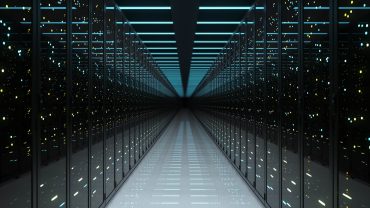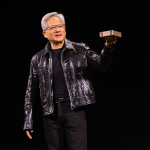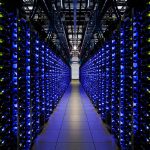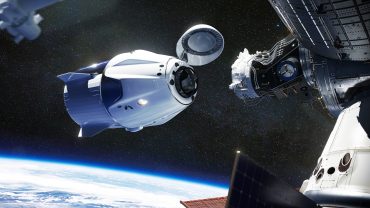
Google Signs $3 Billion Hydropower Deal with Brookfield for AI
6 minute read

Google’s data center hydropower deal addresses surging AI energy demands while expanding clean electricity infrastructure across Pennsylvania
Key Takeaways
- $3 billion hydropower deal signed between Google and Brookfield Asset Management for 20-year power purchase agreements, marking the world’s largest corporate clean power agreement for hydroelectricity
- 670 megawatts initial capacity from Pennsylvania facilities with potential expansion to 3,000 MW through future projects, enough to power millions of homes or dozens of large data centers
- Part of $70 billion AI initiative announced at Pittsburgh summit, reflecting unprecedented electricity demand as Google’s emissions jump 51% since 2019 due to AI data center growth
Introduction
Google secures the world’s largest corporate hydropower agreement in a $3 billion deal with Brookfield Asset Management, highlighting the tech industry’s scramble for clean energy to power artificial intelligence infrastructure. The 20-year power purchase agreements will deliver up to 670 megawatts from Pennsylvania hydroelectric facilities, with options to expand to 3,000 megawatts through future projects.
The deal reflects mounting pressure on tech giants to secure reliable clean energy sources as AI workloads drive unprecedented electricity demand. Google’s data center energy consumption has risen 27% over 2024, largely attributed to AI infrastructure requirements.
Key Developments
The agreements cover power from Brookfield’s Holtwood and Safe Harbor facilities, located 75 miles southwest of Philadelphia. Brookfield acquired these plants in 2014 and 2015, and they offer 670 megawatts of generating capacity as part of the company’s 8 gigawatts of hydro assets nationwide.
Google will invest $25 billion in data centers across Pennsylvania and neighboring states over the next two years. The flexible framework allows the tech giant to scale up clean energy procurement based on future AI workload requirements.
The deal includes plans to relicense, upgrade, and overhaul existing hydro assets, addressing constraints on new hydro projects due to environmental and regulatory challenges. Power not required by Google will be directed to electricity markets across the United States.
Market Impact
The announcement comes as part of a broader $70 billion AI and energy investment initiative, underlining the scale of infrastructure upgrades needed to support AI growth. Google’s parent company Alphabet has seen emissions jump 51% since 2019, driven primarily by expanding data center operations.
The deal provides revenue stability for both parties, with Google locking in predictable clean energy costs while Brookfield secures a creditworthy customer for decades. The agreements will assist Brookfield with relicensing efforts and potentially lead to further investments in hydro asset upgrades or acquisitions.
Industry observers note growing interest in “firm” renewable energy sources that provide consistent power supply regardless of weather conditions, following similar moves by competitors like Meta’s nuclear plant agreement in Illinois.
Strategic Insights
The focus on hydropower reflects a strategic shift toward reliable baseload renewable energy as wind and solar face policy uncertainties. President Trump’s fiscal legislation retained production and investment tax credits for hydropower until 2036, while wind and solar projects face tighter deadlines.
Hydropower represents nearly one-third of utility-scale clean energy in the United States and supplies about 6% of total electricity generation. The technology offers advantages for AI applications requiring consistent power delivery, making older hydro assets increasingly attractive despite lengthy relicensing processes.
The deal positions Google competitively in AI infrastructure, where power availability becomes a critical bottleneck for growth. Direct power purchase agreements help tech companies pay for additional generating capacity while easing grid capacity and cost pressures on consumers.
Expert Opinions and Data
“This collaboration with Brookfield is a significant step forward, ensuring clean energy supply in the PJM region where we operate,” said Amanda Peterson Corio, Google’s head of data center energy. The agreement aligns with Google’s strategy to match data center energy consumption with carbon-free sources on an hourly basis.
According to Bloomberg, Ruth Porat, president and chief investment officer at Alphabet, is expected to discuss the deal at Pittsburgh’s AI summit attended by President Trump.
International Energy Agency data indicates that by 2030, the United States will consume more energy for data processing than for manufacturing aluminum, steel, cement, and chemicals combined. Globally, data centers could consume 945 terawatt hours of electricity by 2030.
Industry analysts suggest the average hydro facility is 64 years old, with relicensing taking an average of eight years, making existing assets valuable despite regulatory complexities.
Conclusion
Google’s hydropower agreement represents a broader industry recognition that reliable clean energy access is fundamental to AI competitiveness. The deal demonstrates how tech companies are turning to established renewable technologies like hydropower to meet growing electricity demands while maintaining sustainability commitments.
The agreement signals renewed investment in one of America’s oldest clean energy sources, as hyperscalers drive demand for baseload renewable power. With bipartisan political support and favorable tax treatment, hydropower emerges as a critical component of AI infrastructure development.







